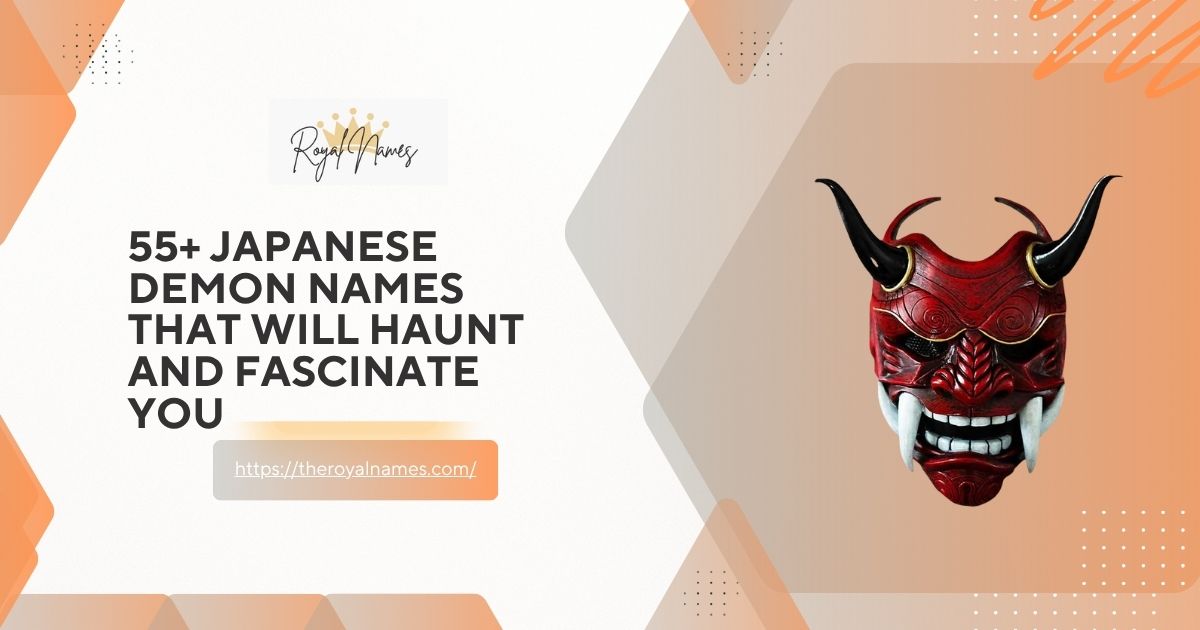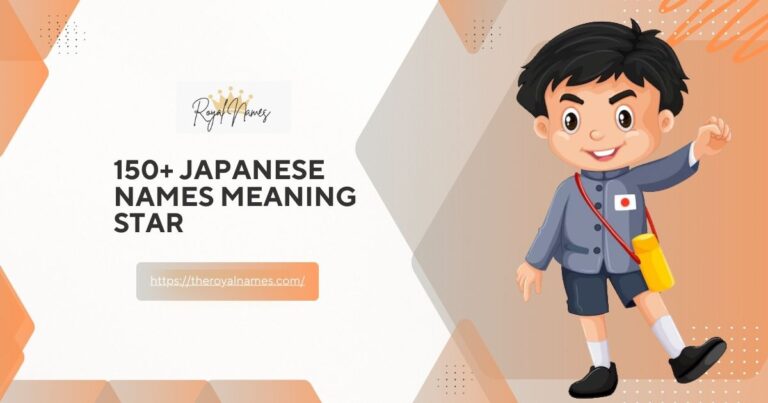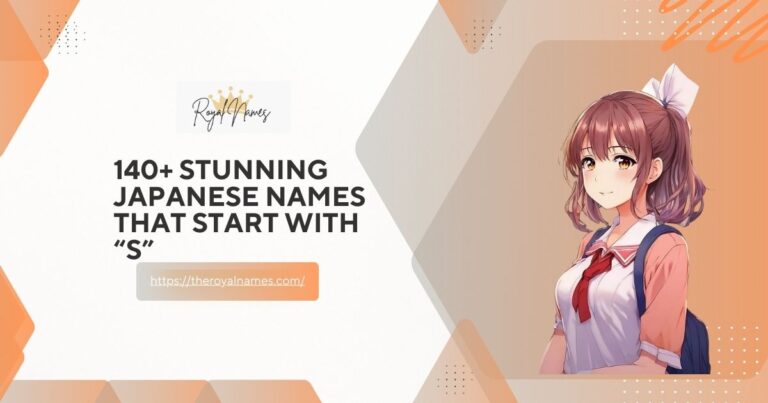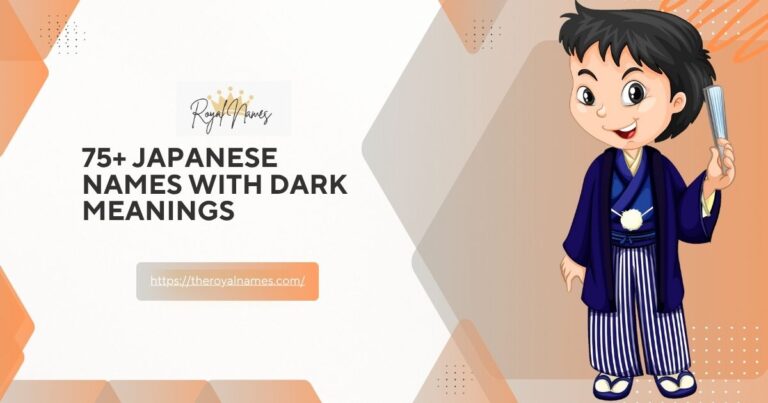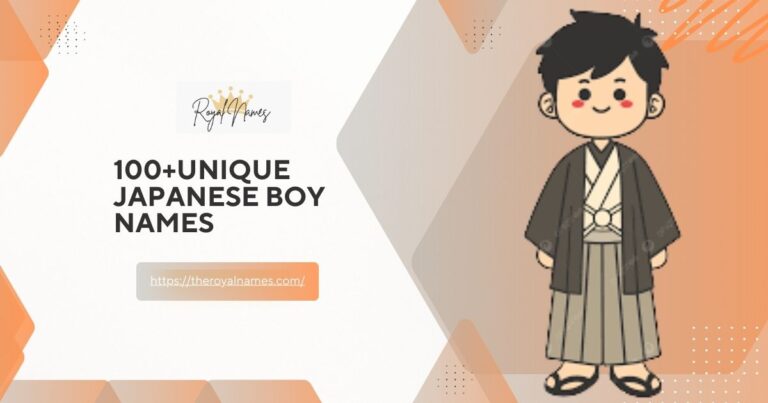55+ Japanese Demon Names That Will Haunt and Fascinate You
Japanese demon names often evoke a rich tapestry of folklore and mythology, each imbued with unique characteristics that reflect cultural fears and moral lessons. Japanese demon names are not just labels; they embody deep cultural narratives and historical contexts that have captivated audiences for centuries. In this article, we’ll introduce you to a selection of these compelling names and the legends attached to them, providing insight into their roles within Japanese culture.
What is meant by Japanese Demon Names?
Japanese demon names, often derived from folklore and mythology, evoke a rich tapestry of cultural narratives that explore the duality of human nature. These names, such as “Oni” and “Yurei,” represent not just malevolent spirits but also the fears and moral lessons embedded within Japanese society.
Each name carries with it a story steeped in history, often reflecting the societal values and psychological complexities of the era in which they originated. For instance, Oni are frequently depicted as formidable adversaries, embodying chaos and destruction, yet they can also serve as protectors against other evils.
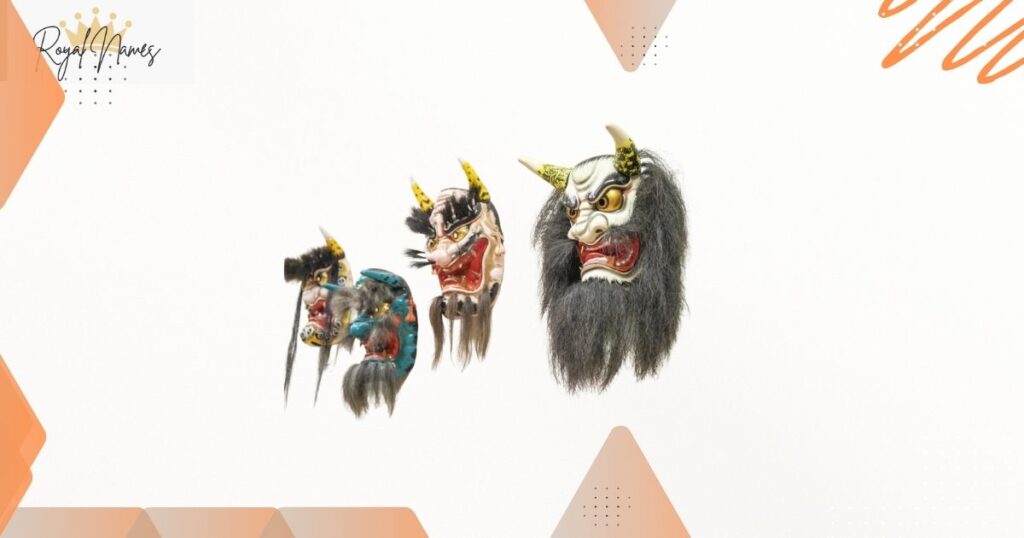
The allure of these names lies in their layered meanings and the way they challenge our perceptions of good and evil. While Western demonology often portrays demons as unequivocal embodiments of sin, Japanese folklore invites a more nuanced understanding.
Many demons exist as tragic figures, cursed to wander between worlds due to past misdeeds or unfulfilled desires. This complexity adds depth to their narratives, suggesting that the line between hero and villain is often blurred. By exploring Japanese demon names, we not only delve into the supernatural but also confront our own fears, desires, and the universal struggle for redemption.
Best Japanese Demon Names
Japanese demon names often evoke a rich tapestry of folklore, history, and cultural nuance, each carrying stories that reflect the fears and beliefs of ancient society. Below are the some best Japanese Demon Names:
- Oni
- Tengu
- Yuki-onna
- Kappa
- Rokurokubi
- Nure-onna
- Nurarihyon
- Yurei
- Gashadokuro
- Yomotsu-shikome
Cool Japanese Demon Names
In the rich tapestry of Japanese folklore, demon names carry profound meaning and often reflect the traits or stories associated with these enigmatic beings. In following list you will see some cool demon names in Japanese:
- Raijin
- Fujin
- Nurikabe
- Jorogumo
- Amanojaku
- Hannya
- Mokumokuren
- Wanyudo
- Shuten-dōji
- Tsukumogami
75+ Japanese Names with Dark Meanings.
Male Japanese Demon Names
Male Japanese demon names, or “yōkai,” often carry deep cultural significance and reflect the complex interplay between folklore and societal fears.
- Enma
- Tamamo-no-Mae
- Kiyohime’s Demon Lover
- Kubinashi
- Daitengu
- Hannya-otoko
- Shoki
- Akaoni
- Ao-oni
- Raikou’s Oni
Female Japanese Demon Names
In the intricate tapestry of Japanese folklore, female demons, or yōkai, embody a rich blend of beauty, tragedy, and terror.
- Ubume
- Oiwa
- Kuchisake-onna
- Yamauba
- Hone-onna
- Iso-onna
- Kurozuka
- Taka-onna
- Kitsune-onna
- Noppera-bō
Ancient Japanese Demon Names
In the rich tapestry of Japanese folklore, ancient demon names carry with them not just the weight of fear, but also profound cultural significance. Below are some of the ancient demon names for japanese:
- Yamato-no-Orochi
- Shuten Dōji’s Followers
- Ibaraki-dōji
- Tsuchigumo
- Futakuchi-onna
- Hashihime
- Yomotsu-hirasaka Oni
- Uwan
- Tenome
- Jikininki
Evil Japanese Demon Names
In the rich tapestry of Japanese folklore, evil demon names evoke a sense of dread and fascination, each one steeped in history and cultural significance.
- Akuma
- Orochi-no-Oni
- Yomotsu-shikome (variant)
- Onibaba
- Hannya (evil spirit form)
- Aoandon
- Gaki
- Jigoku-no-Kami
- Tatarimokke
- Akaname
150+ Japanese Names Meaning Star.
Final Words
The exploration of 55+ Japanese demon names reveals the profound impact of folklore on societal values and personal beliefs. These names are more than mere labels; they encapsulate centuries of history, art, and spirituality, each representing a unique aspect of the human condition. Whether they embody fear, wisdom, or a warning against misdeeds, these demons play an essential role in shaping narratives that resonate through time.
FAQs
What is the Japanese name for devils?
The Japanese name for devils is “oni.” Oni are often depicted as large, fearsome creatures with horns, sharp claws, and wild hair. They are a significant part of Japanese folklore and mythology, often portrayed as malevolent beings that bring misfortune or chaos.
What is the strongest Japanese demon?
Shuten-dōji is often considered one of the strongest Japanese demons in folklore. Known as a formidable ogre, or “oni,” he resided on Mount Oe and was notorious for his strength and cunning. His legend tells of him terrorizing nearby villages, abducting young women, and consuming sake to enhance his power. Shuten-dōji’s character embodies both physical might and a certain charm, making him a complex figure in Japanese mythology.

